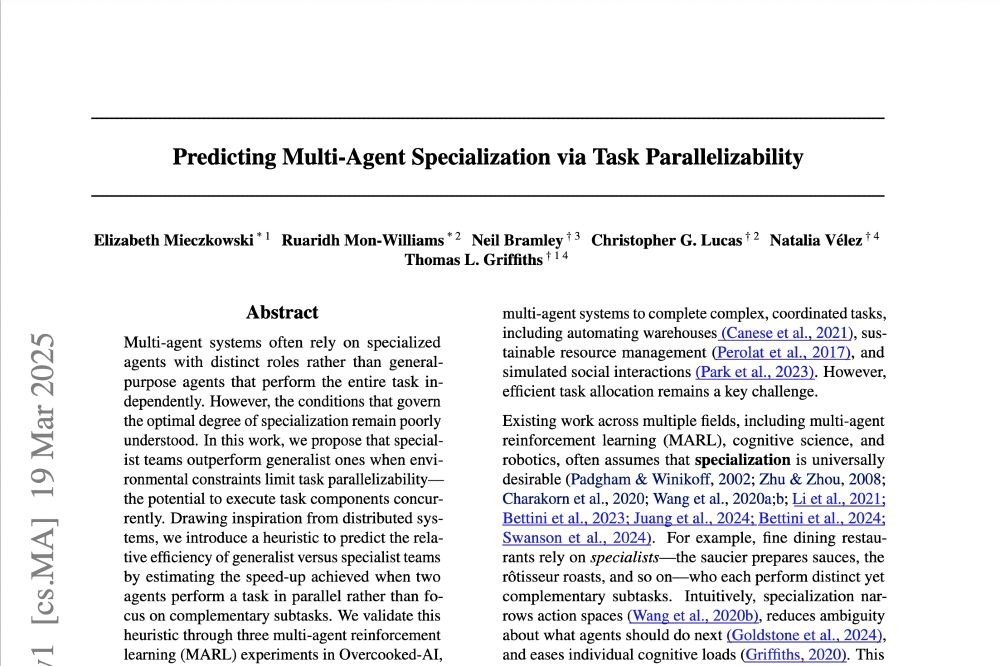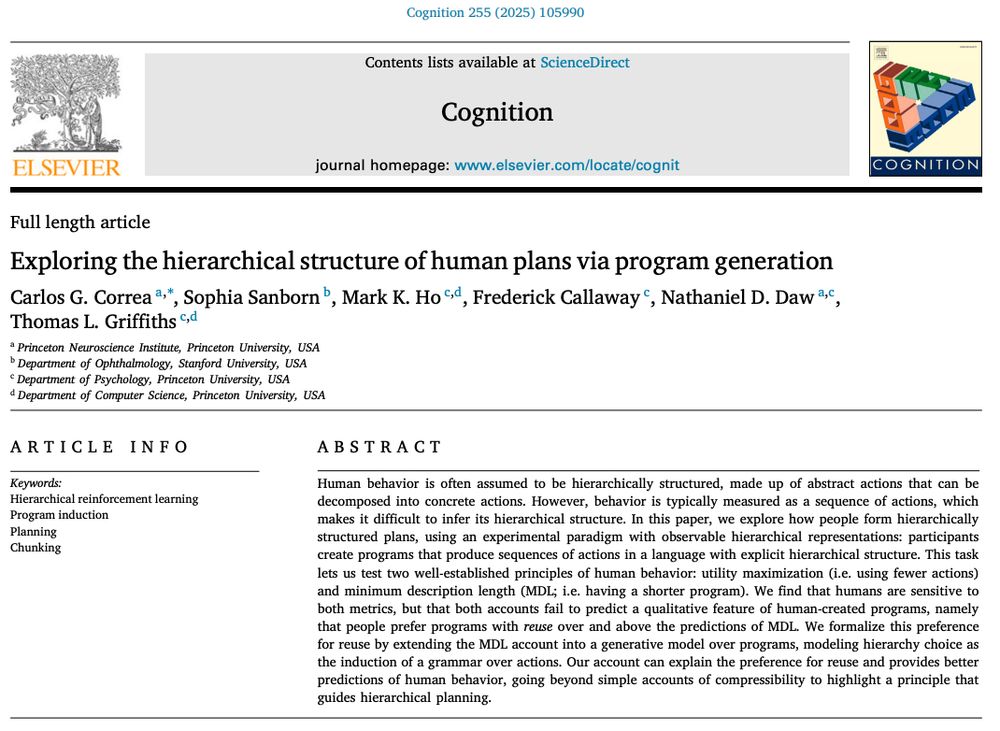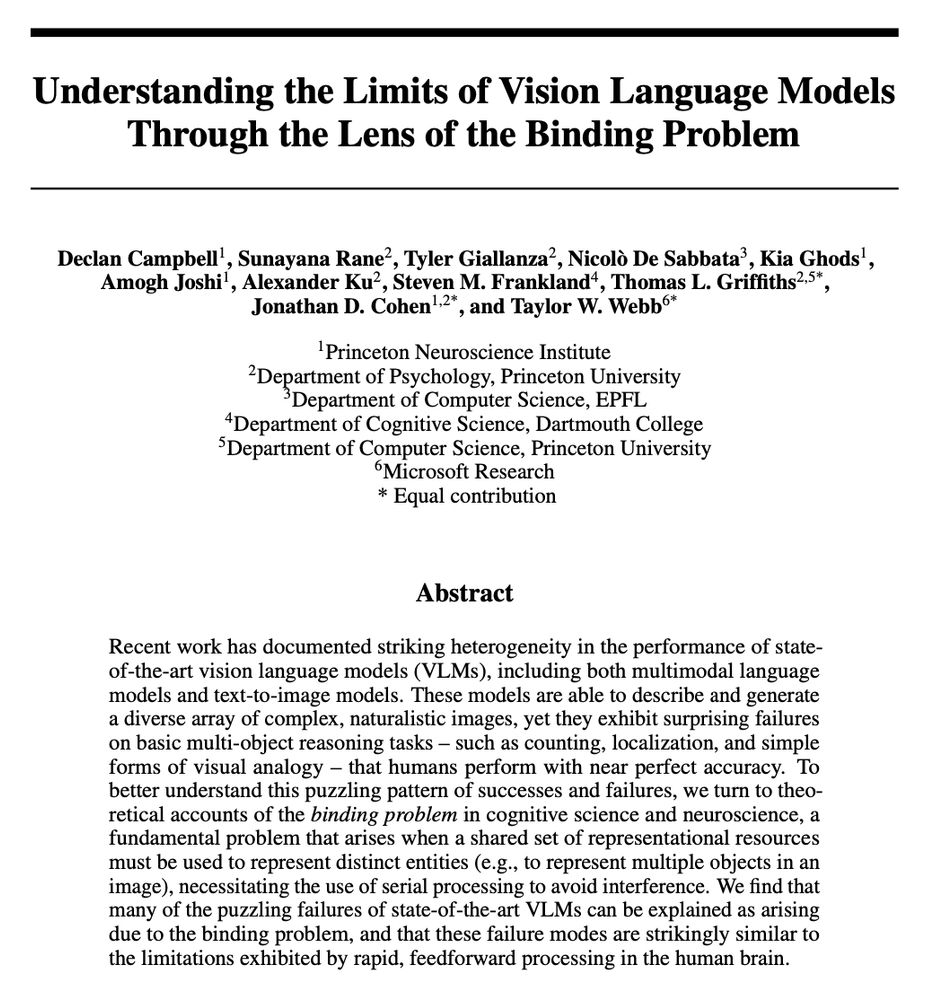Griffiths Computational Cognitive Science Lab
Tom Griffiths' Computational Cognitive Science Lab at Princeton. Studying the computational problems human minds have to solve.
- Reposted by Griffiths Computational Cognitive Science Lab🚨 New in Nature Human Behavior! 🚨 Binary climate data visuals amplify perceived impact of climate change. Both graphs in this image reflect equivalent climate change trends over time, yet people consistently perceive climate change as having a greater impact in the right plot than the left. 👇1/n
- New preprint shows that ideas from distributed systems can be used to predict when agents will adopt specialized strategies when working together to perform a task
- We often assume that specialized roles improve performance in multi-agent systems, but when does specialization emerge based on a given task and environment? 🧵👇 ⭐️ New preprint w/ Ruaridh Mon-Williams, @neilbramley.bsky.social, Chris Lucas, @natvelali.bsky.social & @cocoscilab.bsky.social
- The new AI Lab at Princeton has positions for AI Postdoctoral Research Fellows for three research initiatives: AI for Accelerating Invention, Natural and Artificial Minds, and Princeton Language and Intelligence. Deadline is 12/31. More information here: ai.princeton.edu/ai-lab/emplo...
- Reposted by Griffiths Computational Cognitive Science LabMy paper on hierarchical plans is out in Cognition!🎉 tldr: We ask participants to generate hierarchical plans in a programming game. People prefer to reuse beyond what standard accounts predict, which we formalize as induction of a grammar over actions. authors.elsevier.com/a/1kBQr2Hx2x...
- (1/5) Very excited to announce the publication of Bayesian Models of Cognition: Reverse Engineering the Mind. More than a decade in the making, it's a big (600+ pages) beautiful book covering both the basics and recent work: mitpress.mit.edu/978026204941...
- Reposted by Griffiths Computational Cognitive Science Lab(1) Vision language models can explain complex charts & decode memes, but struggle with simple tasks young kids find easy - like counting objects or finding items in cluttered scenes! Our 🆒🆕 #NeurIPS2024 paper shows why: they face the same 'binding problem' that constrains human vision! 🧵👇




